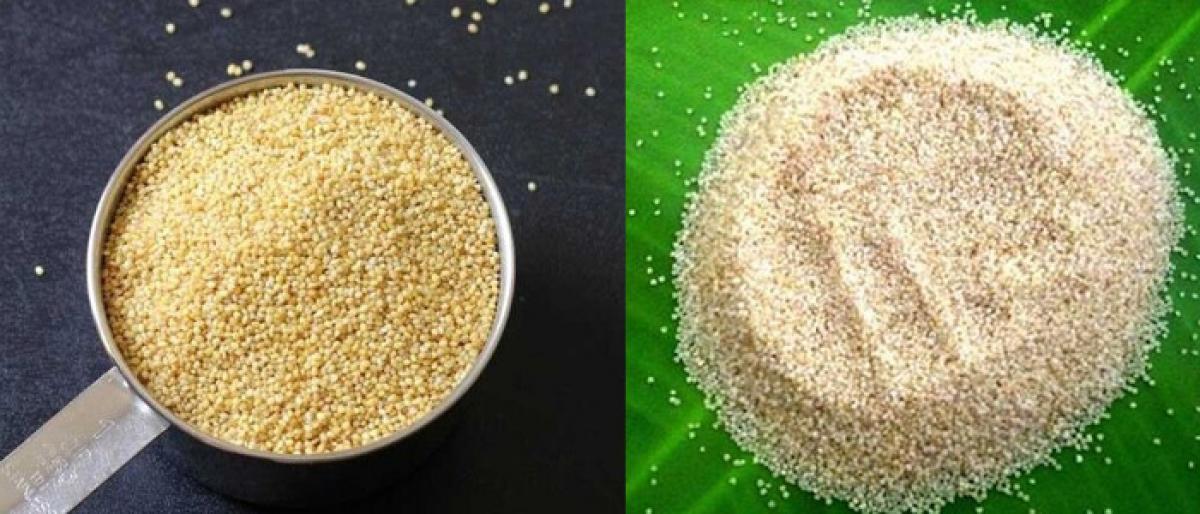Know your Millets

Millets are a group of small-seeded grasses, grown around the world as cereal crops, livestock feed and for human consumption too. They are primarily produced in India followed by Africa and China.
Millets are a group of small-seeded grasses, grown around the world as cereal crops, livestock feed and for human consumption too. They are primarily produced in India followed by Africa and China.
Millets are gluten-free and can be used in porridges, snacks and breads. Being a good source of nutrients, vitamins and minerals, they come with their share of health benefits such as boosting heart and respiratory health, optimising the immune system, detoxifying the body, increasing energy levels and improving muscle and nerve health.
Easy to digest, millets are one of the few grains that alkalise the body. They have a high protein content and can easily replace rice. They can be simply added to a stir-fry or a salad or even added to make muffins. One can easily make rotis from millet flour too, reducing the consumption of wheat.
To cook, all you do is wash the millets, and add about 3 cups of water to 1 cup of millet and boil with salt. Once the water is boiled, simmer for 15 minutes until the liquid is absorbed. Then fluff them with a fork and leave for five minutes to use.
Pearl Millet (Bajra): This is the most widely-grown millet and India is the largest producer. Bajra is a rich source of phosphorus and magnesium.
Finger Millet (Nachani / Raagi): This is rich in calcium and protein. It also has some essential amino acids which are essential for the human body. It also is a wonderful antioxidant.
Foxtail Millet (Kangni / Thinai): High in iron, these millets are organic, as they actually act as anti-pest agents to store some pulses! They help in controlling blood sugar and cholesterol levels too.
Kodo Millet (Kodra): This is high in fibre and low in fat and are good for diabetes.
Little Millet (Saamai): High in iron, fibre and easy to digest.
Barnyard Millet (Jhangora): This has a low glycemic index and thus helps in type 2 diabetes and cardiovascular disease.
Sorghum (Jowar): This has high nutritional value with proteins, fibre and minerals. It also helps in metabolism.














